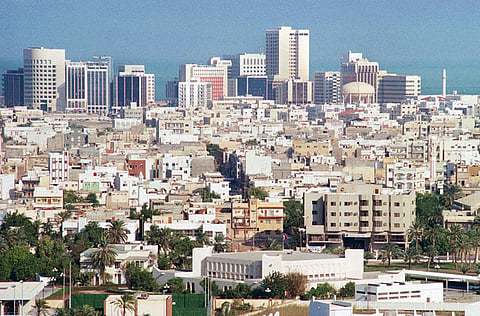Free trade resilient during world crisis
Resilience and global recognition of importance of free trade hailed by experts

Dubai: Negotiations on the Doha Round of international trade talks are close to completion and there could be an agreement very soon if political will refocuses on the task.
It is a tribute to the resilience of free trade that protectionism has not taken hold during two years of global crisis, despite all sorts of domestic pressures on national governments.
"It is vital to conclude the Doha Round, which will be one of the world's first confirmations of a changed economic power balance," Pascal Lamy, Director General of the World Trade Organisation, told the Bahrain Global Forum organised by the International Institute of Strategic Studies.
"Two issues need to be resolved: one is a technical negotiation over fishery subsidies, and the other is that the Obama administration needs the political will to take a Doha Round bill to Congress and get it passed," Lamy said.
"With these two in place, and a general recognition from the negotiators that we are in the end game and need to be open about their final demands, we could finalise the Round within six months," he said.
However, despite his optimism Lamy noted that US President Barack Obama might well need another round of concessions from China, India and Brazil to get a deal that he could get through Congress, and he hoped that this would not open up a whole further set of negotiations.
Lamy sees the Doha Round as fitting into the process of rebalancing global economic power which is happening in many international forums, as the G8 has become the G20 to give the developing world a greater part in decision making, and as the voting rights in the IMF and World Bank shift towards developing nations.
"The emerging developing world is rightly claiming its fair share of global economic decision-making power," said Lamy, who noted that this was essential as the world became increasingly interdependent in managing many sectors including trade, finance, climate change and many other areas.
Many speakers at the Bahrain Global Forum spoke of the importance of restarting momentum to pass the Doha Round, despite general agreement that the global economic crisis had not triggered a far more protectionist political atmosphere than before, as leaders rushed to protect jobs in their home countries.
However protectionism was a very real danger, as is proved by the way that more than 200 separate pieces of protectionist legislation have been passed around the world since the G20 started in 2009 and condemned protectionism, as was pointed out in an intervention from the floor by David Price, former Deputy National Security Adviser to the US President on International Economic Affairs.
But despite these protectionist moves and the lack of forward momentum in achieving final approval for the Doha Round, the world has not gone backwards.
The resilience and global recognition of the importance of the free trade process was hailed by Professor Richard Cooper of Harvard University and former senior US government official, when he opened the forum. He said it was remarkable that protectionism had not become much bigger during the crisis.



